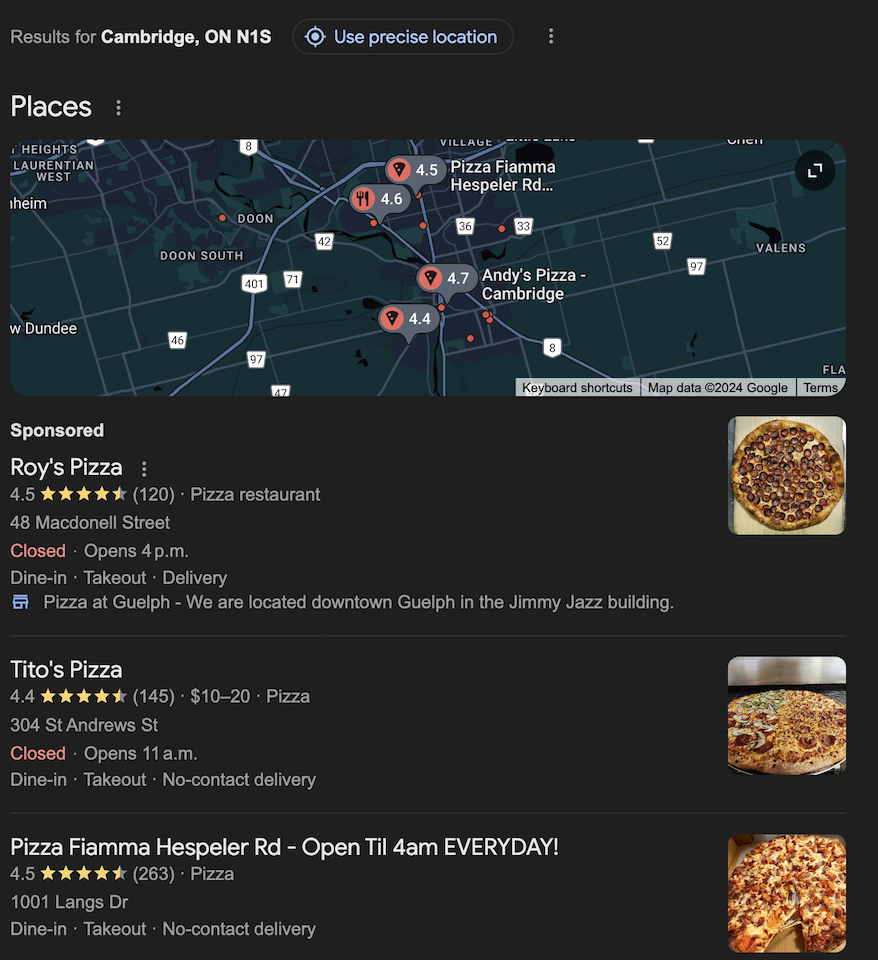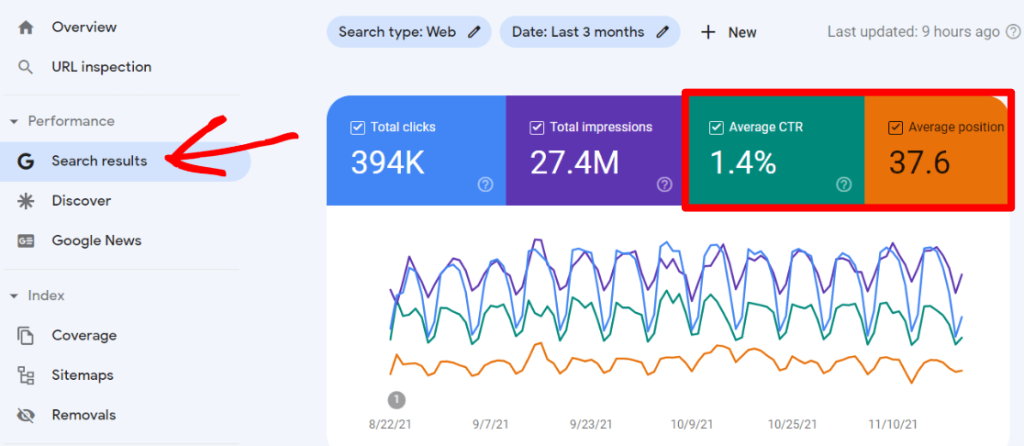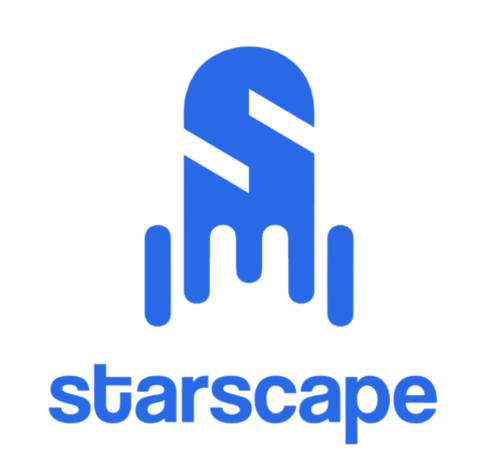Hi, Dave Fox here from Starscape SEO. In today’s digital age, having an online presence isn’t just an option—it’s a necessity.
Whether you’re a local bakery, a plumbing service, or an international e-commerce business, the internet is where customers discover, engage with, and ultimately decide to purchase from you.
But as essential as this online visibility is (which hinges on solid SEO strategies that we provide), the tools designed to help businesses achieve it can often be confusing and, in some cases, overwhelming.
Two of the most crucial tools in Google’s suite for businesses are Google My Business (GMB) and Google Search Console (GSC).
While both are powerful in their own right, they serve different purposes and track different types of data.
The lack of integration or clear guidance on how these tools work together has left many business owners wandering through a digital wilderness, trying to make sense of it all.
Call or Text Starscape SEO: (519) 208-8680
What Do Google My Business and Google Search Console Do?
Google My Business (GMB)

This tool is primarily focused on local businesses. It allows businesses to manage their online presence across Google, including in Search and Maps.
Through GMB, businesses can update their information, respond to reviews, post updates, and, most importantly, understand how customers are interacting with their business profile.
The “Performance” tab in GMB provides insights into how users find and interact with the business—whether through discovery searches, direct searches, or branded searches.
It tracks actions like clicks for directions, phone calls, and clicks to the website from the GMB listing.
Google Search Console (GSC)

GSC, on the other hand, is a tool for tracking the performance of your website in Google’s organic search results.
It provides insights into how your website is being indexed, which search queries are driving traffic to your site, and the overall health of your website from an SEO perspective.
It’s indispensable for understanding how your site ranks in search and identifying opportunities for optimization.
The Confusion: GMB and GSC Data Do Not Overlap

A common point of confusion arises when business owners try to reconcile the data between GMB and GSC.
Many assume that the data from GMB (such as website clicks from the business profile) would naturally appear in GSC under the corresponding search queries.
However, this is not the case. Here’s why:
Google My Business Data
When someone interacts with your GMB profile—say, they find your business through Google Maps or a local search, and then click through to your website—this interaction is recorded in GMB’s Performance tab.
However, this click doesn’t get reported in Google Search Console because GSC is specifically tracking clicks from Google’s organic search results, not from a GMB profile.
Google Search Console Data
GSC focuses solely on clicks and impressions that originate from the organic search results on Google, not from other Google services like Maps or your GMB listing.
So, if someone finds your website via a non-local search query and clicks on the link directly from the search results, that interaction is tracked in GSC.
This separation means that even though both tools are essential for understanding your business’s online performance, they are tracking different things.
GMB is focused on local visibility and how users engage with your business profile, while GSC is all about your website’s performance in organic search.

The Impact: Why This Confusion Matters
For business owners, especially those not well-versed in digital marketing, this distinction can be incredibly confusing.
The disconnect between these two tools can lead to misunderstandings about where traffic is coming from and what’s driving customer engagement.
Without a clear understanding, business owners might make misguided decisions about their online strategy, potentially missing out on opportunities to optimize their presence or, worse, feeling discouraged when they can’t connect the dots between their online activity and their business outcomes.
For example, a business owner might see a high number of website clicks in GMB but low numbers in GSC and wonder why their SEO efforts aren’t yielding better results.
Conversely, they might see strong performance in GSC but wonder why it’s not translating into more local foot traffic, not realizing that GMB is where they need to focus for local engagement.
What’s Really Going On: A Closer Look at the Data
To clear things up, it’s important to recognize that Google My Business and Google Search Console are complementary tools, each providing a piece of the larger puzzle:
Google My Business is all about how customers find and interact with your business within the Google ecosystem, specifically through Maps and local searches.
It helps you understand the effectiveness of your local presence and how well you’re engaging with potential customers at the point of discovery.
Google Search Console is all about your website’s organic visibility.
It shows you which search queries are driving traffic to your site, how well your site is performing in search, and what issues might be affecting your rankings.
Together, these tools offer a more complete view of your online presence:
GMB helps you optimize your local business profile, ensuring that when customers search for services like yours, they find you easily and have all the information they need to engage with your business directly.
GSC helps you optimize your website for broader search visibility, ensuring that when people are searching for relevant keywords, your website is visible, optimized, and attracting clicks.
Bridging the Gap: How to Use GMB and GSC Together

To make the most of these tools, it’s important to approach them as complementary rather than competing platforms. Here are a few tips:
Use GMB to Enhance Local Presence
Regularly update your GMB profile with accurate information, engaging photos, and posts. Monitor the Performance tab to see how people are interacting with your business profile and adjust your local strategy accordingly.
Use GSC for Website Optimization
Monitor your website’s performance in search results through GSC. Pay attention to which queries are driving traffic, and use this information to optimize your website content for better search visibility.
Cross-Check Insights
If you see strong local engagement in GMB but low traffic in GSC, consider enhancing your website’s local SEO to better capture local search traffic.
Conversely, if GSC is showing strong performance but you’re not seeing local engagement, it might be time to revisit your GMB profile and make sure it’s fully optimized.
Conclusion: Don’t Get Lost in the Wilderness

Understanding the distinction between Google My Business and Google Search Console is crucial for any business looking to succeed online.
While the lack of direct integration between the two can be frustrating, recognizing how each tool fits into your broader digital strategy can help you make more informed decisions.
By leveraging both GMB and GSC effectively, you can gain a fuller picture of your business’s online presence, ensuring that you’re not just visible to potential customers, but also engaging them in meaningful ways that drive growth and success.
So, rather than getting lost in the digital wilderness, take control of these powerful tools and let them guide your business toward a more prosperous future.
Call or Text Starscape SEO: (519) 208-8680

Bonus: One Act Play Featuring Google Programmer “Ted”


